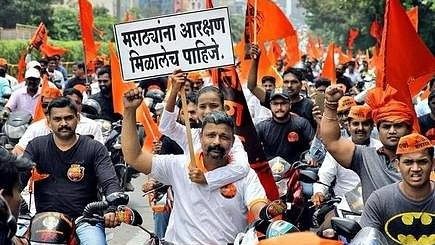
Mumbai: The hearings and decision in the pleas challenging constitutional validity of the law providing reservation to the Maratha community will get delayed with the central government, on Tuesday, clearing the transfer of Bombay High Court (HC) Chief Justice (CJ) DK Upadhyaya as the CJ of Delhi HC.
The law granting 10% reservation to the community under the Socially and Educationally Backward Class category was passed on February 20, 2024, by the Maharashtra legislature based on the report by the Maharashtra State Backward Class Commission (MSBCC) led by retired Justice Sunil B Shukre. The committee said that “exceptional circumstances and extraordinary situations” existed to grant reservation in excess of 50 per cent total reservation in the state.
The Governor’s notification was issued on February 26. Several petitions were filed challenging and supporting this order. The issue of Maratha reservation was at the forefront during the 2024 Lok Sabha and Assembly elections.
A special three-judge bench of CJ Upadhyaya and Justices Girish Kulkarni and Firdosh was constituted which has been hearing the petitions on a regular basis since April last year. The petitioners concluded their arguments on October 14 last year, and on November 19, Advocate General Birendra Saraf began his arguments defending the government’s decision to grant reservation.
During the last hearing on November 19, the HC has said that other than showing backwardness of the Maratha community, the Maharaahtra government will have to justify breaching the 50% limit laid down by the Supreme Court, while granting 10% reservation to the community in government jobs and educational institutions.
The bench had scheduled further hearings in the matter on January 14 and 15. However, a notice was put up on the HC website stating that the same are adjourned till further notice.
The Centre, on Tuesday, also cleared the transfer of Telangana HC CJ Alok Aradhe as the CJ of Bombay HC. After he takes charge, he is likely to reconstitute the bench to re-hear the pleas against Maratha reservation.
Initially, petitions were filed challenging the reservation. Subsequently, the petitions challenged the appointment of Shukre as MSBCC chairperson and Omprakash Jadhav as its member and sought direction to strike down the action of the state government to implement the panel’s report.
Following this, the Commission was added as a respondent to the petitions and notice was issued.
Initially, the matter came up for hearing on March 8, 2024, before a bench of Justices Kulkarni and Pooniwalla, which while refusing to grant interim stay on the recruitment process for police constables and medical NEET examinations under the Maratha quota, clarified that the applications received under the advertisements shall be subject to further orders “in the interest of justice”.
Considering the larger issue, CJ Upadhyaya constituted a three-judge bench presided by him to hear the batch of pleas. The full bench had clarified on April 16, 2024, till further orders, any applications for admissions to educational institutions or jobs at government authorities taking benefit of the impugned Act will be subject to further orders in the present proceedings.
This is the third round of litigation concerning Maratha reservations. In December 2018, a batch of petitions were filed challenging SEBC Act of 2018 that granted Marathas 16 per cent reservation in government jobs and education. The HC reserved the order on March 26, 2019, and on June 27, it passed an order reducing the quota to 12 percent in education and 13 per cent in government jobs.
In May 2021, the Supreme Court’s Constitution bench struck down the SEBC Act, 2018. The apex court also dismissed the review petition filed by the state government against the order in April 2023.